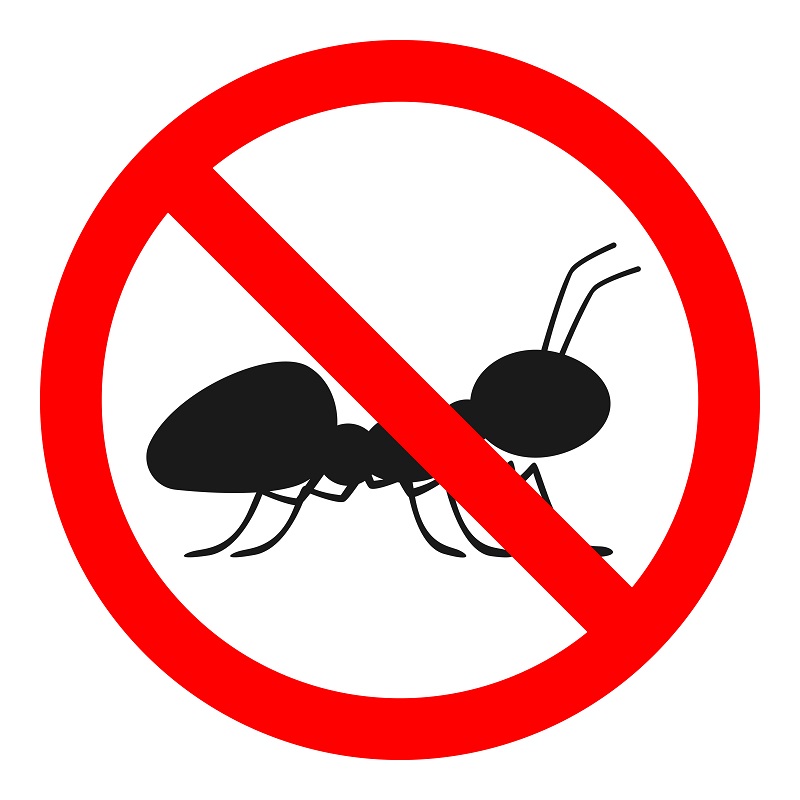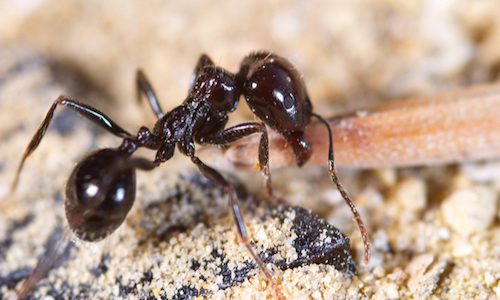Professional Ant Control Services: Personalized Treatments for Lasting Outcomes
Professional Ant Control Services: Personalized Treatments for Lasting Outcomes
Blog Article
Ecological Influence of Bug Control: Balancing Performance With Sustainability
The environmental effect of bug control is a critical problem that needs a fragile equilibrium between accomplishing performance in making certain and managing pests sustainability of our communities. From the use of dangerous chemicals that permeate right into our dirt and water to the unplanned consequences on non-target species, the repercussions of conventional pest control practices are far-reaching.
Damaging Chemicals in Bug Control
The use of unsafe chemicals in parasite control postures substantial ecological and wellness threats that call for cautious consideration and mitigation techniques. Pesticides, chemicals, and herbicides are commonly made use of to get rid of bugs, however their extensive application can result in unintended consequences. These chemicals can infect dirt, water resources, and the air, impacting not just the targeted insects however also advantageous insects, wild animals, and humans.

To attend to these dangers, integrated insect administration (IPM) techniques are being promoted as a more lasting choice. IPM entails a mix of techniques such as biological control, environment adjustment, and the targeted usage of chemicals as a last resource (ant control statesville nc). By embracing a holistic strategy to pest control, we can lessen the environmental and health influences connected with hazardous chemicals while effectively taking care of pest populations
Influence On Non-Target Variety
Thinking about the unintended effects of bug control techniques, the influence on non-target types is a vital aspect that needs comprehensive evaluation. While bug control measures intend to target specific bugs, other microorganisms in the ecosystem might be accidentally impacted. Non-target varieties, including valuable insects, birds, animals, and also plants, can experience straight or indirect damage from chemical applications or biological control techniques.
Chemicals can have sub-lethal or deadly results on non-target species. For instance, pesticides designed to fight a certain bug pest may damage pollinators like bees or natural predators such as ladybugs. Furthermore, chemical deposits can gather in the environment, impacting non-target microorganisms with time. Similarly, biological control agents, if not species-specific, can present threats to unintended targets, disrupting the environmental balance.
To mitigate the impact on non-target species, incorporated parasite monitoring (IPM) approaches that stress an alternative technique to pest control are suggested. These techniques prioritize making use of eco-friendly techniques, lessening damage to beneficial microorganisms while efficiently taking care of pest populations. Conducting thorough threat analyses and keeping an eye on the end results of insect control efforts are crucial actions in guarding non-target types and promoting total ecological community health and wellness.
Soil and Water Contamination
Unplanned ecological consequences of parasite control techniques extend past affecting non-target species, with substantial ramifications for dirt and water contamination. Pesticides, herbicides, and chemical go to my blog plant foods utilized in pest control can seep into the dirt and contaminate groundwater, posturing a hazard to both terrestrial and water communities. Dirt contamination can interrupt the equilibrium of bacteria essential for nutrition cycling and plant growth, bring about reduced dirt fertility and productivity. These chemicals can continue in the atmosphere for extended periods, gathering in the soil and potentially going into the food chain.
Water contamination is an additional important issue connected with bug control practices. Runoff from farming areas treated with chemicals can bring these chemicals right into neighboring water bodies, influencing aquatic organisms and water top quality. Pollutants in water resources can have far-reaching consequences, impacting not just marine life yet additionally human health and wellness with the consumption of infected water or water organisms. To mitigate soil and water contamination from parasite control activities, incorporated insect administration strategies that focus on sustainability and lessen chemical inputs are crucial.
Air Pollution From Pesticide Usage
Exposure to airborne pesticides throughout farming applications positions a significant problem for air contamination control actions. Additionally, chemical drift, where pesticides are lugged by the wind to unexpected locations, can lead to the contamination of neighboring ecosystems and water bodies.

Techniques for Lasting Parasite Control
In the world of farming practices, executing sustainable bug control approaches is paramount for maintaining environmental balance and securing plant returns. Lasting parasite control stresses using environmentally friendly techniques to handle bug populaces successfully while decreasing injury to non-target microorganisms and ecosystems. Integrated Pest Management (IPM) is a commonly adopted method that integrates biological, cultural, physical, and chemical control approaches to attain lasting parasite monitoring remedies.
Crop turning and diversification are additionally efficient strategies to interrupt pest life cycles and develop less favorable problems for pests to prosper. Ultimately, by incorporating these sustainable bug control techniques, farmers can achieve a balance in between pest management efficiency and environmental stewardship.
Final Thought
In verdict, the environmental effect of pest control techniques have to be thoroughly taken into consideration to balance efficiency with sustainability. Harmful chemicals utilized in parasite control can lead to soil and water contamination, air contamination, and harm non-target types - termite control services. It is essential to carry out lasting pest control techniques to lessen these adverse effects on the atmosphere and advertise a much healthier ecological community for future generations
By adopting an alternative technique to pest control, we can decrease the ecological and health impacts associated with damaging chemicals while properly taking care of pest populaces.

To minimize the air pollution created by pesticide use, it is important to embrace integrated parasite management approaches that prioritize the usage of non-chemical pest control techniques, such as plant rotation, natural killers, and resistant crop selections. Sustainable bug control stresses the use of ecologically pleasant methods to handle parasite populations efficiently while decreasing harm to non-target organisms and ecological communities. Integrated Pest Administration (IPM) is an extensively adopted method that integrates organic, social, physical, and chemical control methods to accomplish long-lasting parasite monitoring solutions.
Report this page